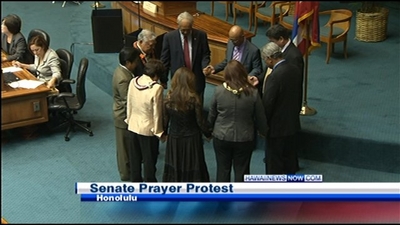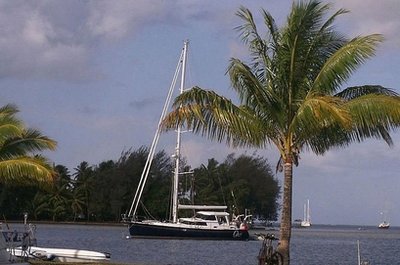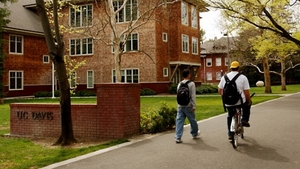Nine Hawaiian lawmakers recently gathered on the floor of their state senate, bowed their heads and continued an American tradition older than our nation itself.
They prayed.
“Nine senators gathered near the Hawaiian flag on the senate floor, joined hands and bowed their heads,” reported Tim Sakahara of Hawaii News Now. “Senator Will Espero led the prayer. Joining him were Senators Mike Gabbard, Clarence Nishihara, Glenn Wakai, Michelle Kidani, Suzanne Chun Oakland, Pohai Ryan, Gilbert Kahele and Ronald Kouchi. They did not have a microphone. No one in the public gallery was asked to stand or participate. The whole thing lasted about 30 seconds.
“Then they made their way to their desks and a moment later the session officially began.”
Only days earlier, the Democrat-dominated Hawaii Senate had voted to become the first legislative body to end daily prayer in their state chambers out of fear of the American Civil Liberties Union. The Senate is made up of 24 Democrats and 1 Republican.
According to press reports, the ACLU had written a letter claiming the prayers violated the separation of church and state. That prompted the state attorney general to advise the senate that he doubted their handling of prayers – by inviting speakers from various religions to preach before every session – could survive the inevitable court challenge, said Democratic Majority Leader Brickwood Galuteria.
But how can anyone say that the framers of the U.S. Constitution would have disapproved of prayer. Congress has opened with prayer ever since September 7, 1774, when the Reverend Jacob Duché, Rector of Philadelphia’s Christ Church, read aloud the 35th Psalm, then prayed:
“O Lord our Heavenly Father, high and mighty King of kings, and Lord of lords, who dost from thy throne behold all the dwellers on earth and reignest with power supreme and uncontrolled over all the Kingdoms, Empires and Governments; look down in mercy, we beseech Thee, on these our American States, who have fled to Thee from the rod of the oppressor and thrown themselves on Thy gracious protection, desiring to be henceforth dependent only on Thee. To Thee have they appealed for the righteousness of their cause; to Thee do they now look up for that countenance and support, which Thou alone canst give. Take them, therefore, Heavenly Father, under Thy nurturing care; give them wisdom in Council and valor in the field; defeat the malicious designs of our cruel adversaries; convince them of the unrighteousness of their Cause and if they persist in their sanguinary purposes, of own unerring justice, sounding in their hearts, constrain them to drop the weapons of war from their unnerved hands in the day of battle!
“Be Thou present, O God of wisdom, and direct the councils of this honorable assembly; enable them to settle things on the best and surest foundation. That the scene of blood may be speedily closed; that order, harmony and peace may be effectually restored, and truth and justice, religion and piety, prevail and flourish amongst the people. Preserve the health of their bodies and vigor of their minds; shower down on them and the millions they here represent, such temporal blessings as Thou seest expedient for them in this world and crown them with everlasting glory in the world to come. All this we ask in the name and through the merits of Jesus Christ, Thy Son and our Savior.
“Amen.”
Those present recorded that at the opening of the Continental Congress, a motion had been made that an opening prayer should be offered.
However, a couple of people suggested that the great religious diversity of the group – Baptists, Presbyterians, Congregationalists and others – would make such prayer unwise.
The great statesman Samuel Adams stood.
He declared he was “no bigot, and could hear a prayer from any gentleman of piety and virtue, who was at the same time a friend to his country.”
The motion for prayer was approved. The Reverend Duche was summoned.
Opening with prayer continues in Congress to this day – and has in other legislature in America. This is the first time that a legislature has caved into the ACLU’s intimidation.
“When are Christians going to stand up and take back their rights and freedoms before it is too late and God has been wiped out of everything?” asks columnist Susan Hillman. “Which state is going to have the strength to stand up and fight? America was founded on freedom and people are needlessly just sitting there and letting it be stolen away after it was fought for by our forefathers.”
The sole Republican in Hawaii’s Senate, Sam Slom, asked fellow members to at least make the prayers voluntary instead of banning the practice all together. “The Senate must stand for something,” he protested, “and not back away when there are challenges.”
His plea fell on deaf ears.
The Senate voted to halt their opening prayer.
So, when the state Senate reconvened, Senator Espero organized a impromptu prayer circle on the floor of the Senate.
“One can call it a silent protest. We’re just saying we’re continuing a tradition that’s being done a little differently than in the past,” he said to reporters. “There are some people who believe we have completely stopped prayer in the senate chamber and that is not the case.”
While the ACLU was able to halt the traditional prayers given by the Indiana House temporarily, Indiana appealed to a federal court; and the court overturned the decision. As of 2008, prayers are back in Indiana.
In Marsh v. Chambers, 1983, the U.S. Supreme Court ruled that prayers at the start of each legislative day are not a violation of the establishment clause of the First Amendment to the U.S. Constitution. Such prayers are deeply embedded in the history and tradition of the nation.
But Hawaii has caved in now.
Let us pray that other states will not follow.


